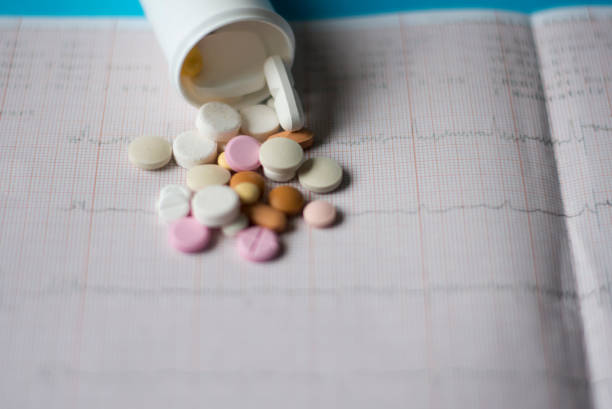
Utilize blood pressure lowering herbs to help prevent strokes and keep your heart in good health. If you're thinking about using one, you might be wondering what the best supplements are. Here are some supplements you should consider.
Magnesium
Magnesium supplements can be used to reduce blood pressure. However, they shouldn't be used to replace the medical attention you receive. A healthy lifestyle, including an appropriate diet and regular exercise can also help lower your BP.
The use of magnesium in lowering blood pressure is not new. Researchers have studied the effects of magnesium on various ailments, such as the immune system and the heart. Magnesium's ability to increase protaglandin E1 which is an ingredient that relaxes blood vessels ' walls, may contribute to lowering blood pressure.
Magnesium is found in a variety of foods such as nuts and whole grains, as well as green leafy vegetables, beans and chickpeas. It's also in some breakfast cereals that have been fortified with magnesium. In addition, magnesium is required for over 300 biochemical reactions within the body.
Research has proven that blood pressure can increase depending on the amount of magnesium you have in your body. However, research has shown that lowering blood pressure with supplements aren't the same as eating magnesium-rich foods.
A recent study from researchers in the United States looked at 34 clinical trials with more than 22,000 participants. The research found that intake of magnesium for three months decreased the systolic (and diastolic) blood pressure by 2.78 and 1.78 millimeters, and 1.78 mmHg, respectively.
Calcium
Numerous studies have demonstrated that calcium supplements could aid in controlling high blood pressure. But, there are risks associated with taking these supplements.
There is a concern that consuming large amounts of calcium may lead to increased chances of developing prostate cancer. One study revealed that those who increased their intake of calcium by over 1,000 mg per day had a higher incidence of prostate cancer.
The American Heart Association recommends that each person consume at minimum 400mg of calcium a day. If you're older than 50 years old it is possible to consume an additional 400 mg a day. It is also possible to take calcium supplements if not getting enough calcium from your diet.
Certain studies have shown that calcium supplements may help during exercise. high blood pressure supplement is recommended to consult with your physician prior to using any calcium supplement. Before taking any supplement, you should consult with your doctor in case you're pregnant or have other health issues.
If you are taking diuretics to lower your blood pressure, you should be aware that calcium supplements could alter the medication. Milk-alkali Syndrome could occur If you do not pay attention. It is caused by your body is consuming too much calcium. This condition can be fatal if left untreated.
If you are taking calcium supplements, some medications such as thiazide diuretics can be metabolized by your kidneys. This can lead to damage to the kidneys.
Potassium
Getting enough potassium is important for a number of reasons. Potassium is essential for proper kidney function and can reduce blood pressure. It also helps maintain good nerve health.
Alongside getting potassium from your diet, you may want to consider adding supplements. Although they've not been proved to be effective high blood pressure however, they could be a simple way to get more potassium into your diet.
Talk to your doctor before using potassium supplements. If you suffer from a kidney condition, it's particularly important to avoid excess potassium. Don't consume any supplements if you have deficiency or you're taking a medication that is recommended to lower your potassium levels.
The supplementation of potassium can be harmful, and it's crucial to be aware of potential side consequences. The potential side effects are heart rhythm problems, diarrhea and weakening. Certain medicines are known to alter potassium levels, so you'll want to check with your physician about which ones you should avoid.
Make sure the label is clear about the ingredients if you are taking an item that has a high potassium content. If you're diabetic or other medical conditions, any product that contains potassium could be risky. If you have kidney problems it is recommended to consult your physician prior to taking any potassium-rich products.
